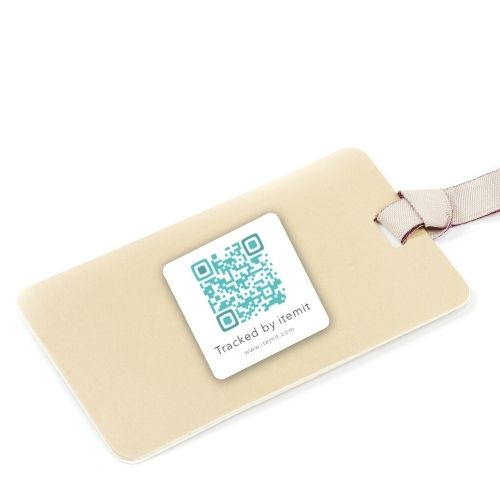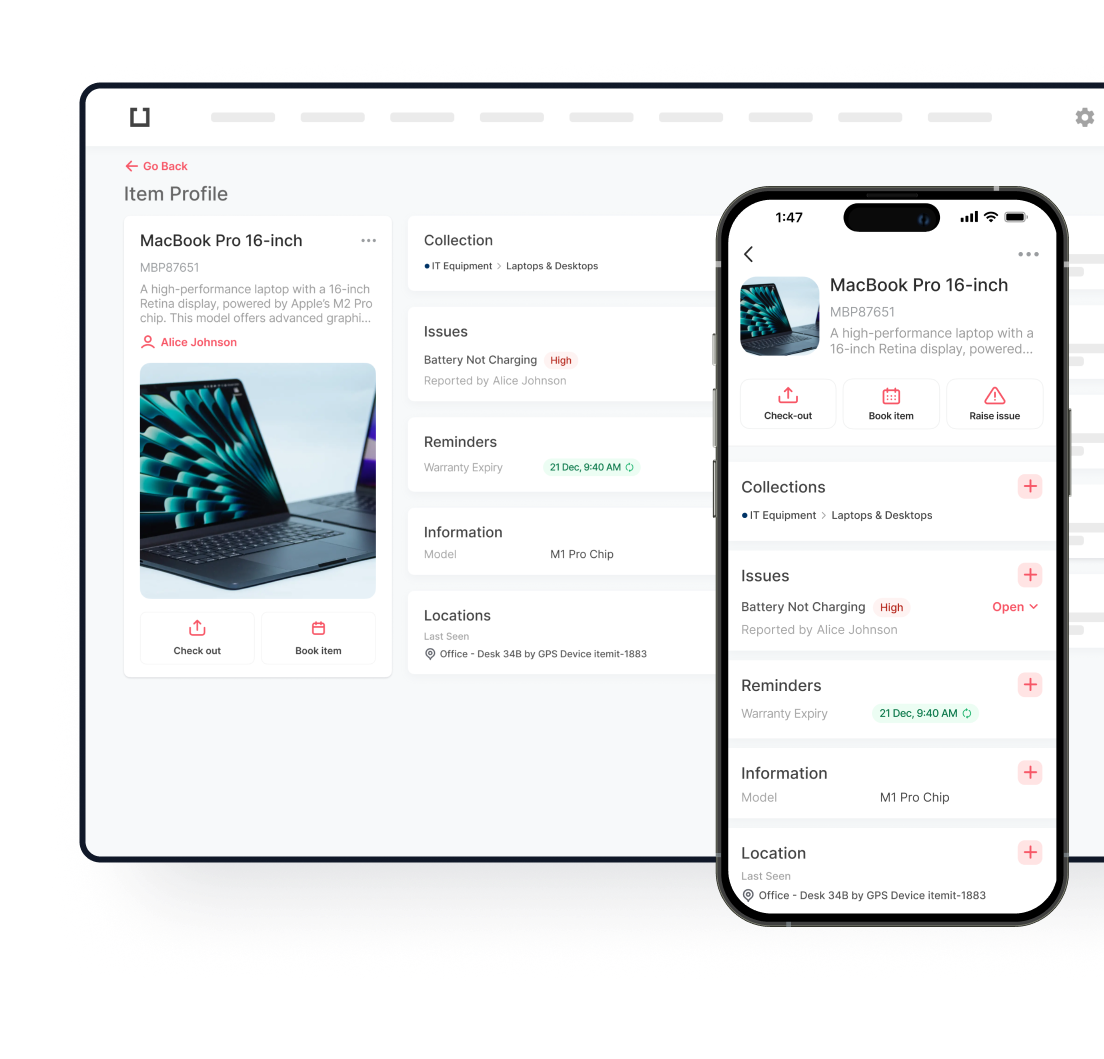
Then, asset tags work by linking your assets to corresponding digital profiles. In other words, they link your physical assets with digital twins of them, meaning that every time you scan an asset’s tag, the corresponding profile is retrieved.
Setting Up Asset Tags
There should be some speed improvements and benefits with your asset tracking app. For example, with itemit, you can bulk add tags to multiple assets or you can create an asset by scanning an unassigned asset tag.
But what is the benefit of using asset tags and are they essential?
Automated Location Tracking
When this happens, the user who scanned the tag and the time of the scan is logged also, giving you the most visibility possible over your assets’ audit trails.
This is a system you don’t get without using asset tags. You can manually update an asset’s location without using tags, but then to create a full audit trail, you will also need to add the time of the scan and who scanned it. Asset tags simply do this process for you with every scan.
Asset tags also allow you to update asset data, such as manually added locations, in bulk. This means that if twenty assets are added to storage, you need only scan the tags in bulk to reflect this.
Speed Up Asset Data Management
If you discover a lost, tagged asset, all you need to do is scan that asset’s tag to retrieve relevant and up-to-date data on it. This means that instead of a lost laptop passing through several hands before it gets back to where it belongs, who it belongs to is visible within the asset’s profile.
This also means that if you need to report an issue or fault with an asset, you don’t need to search for that asset in a list. Scan the tag, report the issue, it’s that simple!
Asset tags, therefore, give you many accountability benefits, increase your visibility and save you time and money in the process.
itemit’s Asset Tracking Software
itemit lets you track and manage any asset and save time and money in the process. You can customise how you track your assets to take your asset management operations as far as possible.
In this sense, you can get the benefits of asset tagging on the assets that require tags, and have the freedom of not being tied down to tags for assets that don’t necessarily need them, such as vehicles.
itemit lets you mix and match asset tagging technology, too, meaning you can track your assets with RFID asset tracking operations, GPS trackers and QR codes and barcodes, all at the same time.
To find out more about how itemit can help you, contact the team at team@itemit.com. You can also fill in the form below to start your 14-day free trial. If you’d like a sample of free tags, let us know!

Try itemit
Choose a better way to track
your assets.
Start your free 14-day trial now!

Keep Learning
itemit Blog
Tips, guides, industry best practices, and news.
Asset Tracking Software: Helping Leprechauns Track Their Pots of Gold
itemit is used by the most unlikely of users…leprechauns, who’d have thought? Take a look into how Ireland’s most famous being uses asset tracking.
Asset Tracking Software Most Powerful Features
itemit is an asset tracking software offering several unique features. This article goes into great detail about the most powerful features this software offers.
How Can Asset Tags Save Your Business Money?
Wondering just what asset tags do? Believe it or not asset tags can be a simple and smart solution to transforming your organisation’s asset management, but how do they do so? Read our latest blog to find out.

